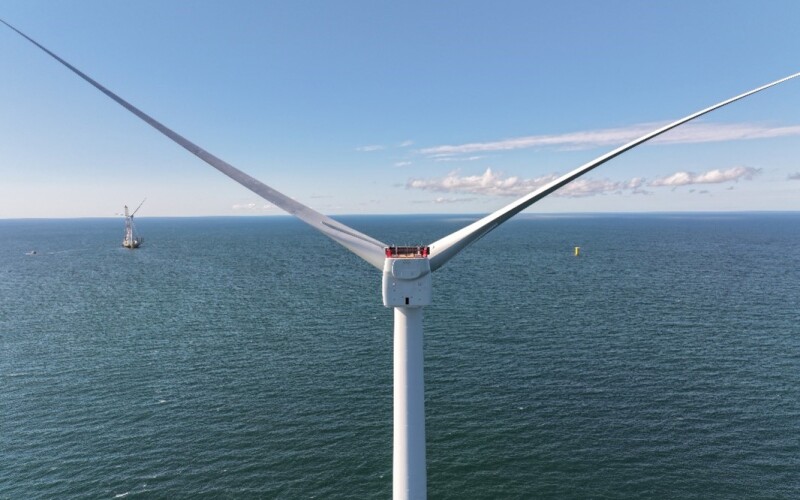Developers of the 806-megawatt Vineyard Wind project off Massachusetts said one of its first five turbines delivered about 5 MW into the New England grid via a cable to Cape Cod shortly before midnight Tuesday, as testing continues with a goal to have the five turbines in full production early this year.
On Wednesday, Equinor and BP, developers of the Empire Wind projects announced they had an agreement with the New York State Energy Research and Development Authority to terminate the Offshore Wind Renewable Energy Certificate (OREC) Agreement for the Empire Wind 2 project – the partners’ second-phase project designed for a potential nameplate capacity of in 1,260 MW.
The events marked the start of another tumultuous year for U.S. offshore wind. While offshore wind advocates hail Vineyard Wind as the first utility-scale project in federal waters, the project has been delayed by weather and construction delays. The first power ashore was earlier predicted for October, and project partners Avangrid and Copenhagen Infrastructure Partners said they still await ongoing testing at sea and onshore before production-level power can feed into the Massachusetts power grid.
In New York, the Empire Wind 2 cancellation is the latest move by developers to bail out of earlier agreements made with Northeast state governments, before the wind industry was hit with sharply increasing costs. In September NYSERDA filed documents with the New York Public Service Commission saying Equinor and BP sought an increase in power purchases from Empire Wind 2 from $107.50 per megawatt-hour to $177.84/MWh.
In their Jan. 3 statement Empire Wind 2 developers said their new agreement with state officials “reflects changed economic circumstances on an industry-wide scale and repositions an already mature project to continue development in anticipation of new offtake opportunities. The decision recognizes commercial conditions driven by inflation, interest rates and supply chain disruptions that prevented Empire Wind 2’s existing OREC agreement from being viable.”
Despite their present distress, developers are hoping supportive state governments will allow them to rebid projects under more favorable terms. There is resistance; in rejecting calls for higher power purchase prices Oct. 13 the New York State Public Service Commission said it “opted to preserve the robust competitive bidding process that provides critically needed renewable energy resources to New York in the fairest and most cost-effective manner that protects consumers.”
Vineyard Wind’s first power was greeted by Massachusetts political leaders who are deeply invested in offshore wind as renewable energy and a new industry for the port of New Bedford.
“This is clean, affordable energy made possible by the many advocates, public servants, union workers, and business leaders who worked for decades to accomplish this achievement,” said Gov. Maura Healey. As we look ahead, Massachusetts is on a path toward energy independence thanks to our nation-leading work to stand up the offshore wind industry."
“New Bedford has invested a great deal of its time, energy, and manpower into supporting the successful launch of the offshore wind industry in Massachusetts,” said Massachusetts state Rep. Tony Cabral.
The Democratic legislator representing New Bedford referred back to the Whaling City’s historic industry that brought oil to fuel American household lamps in the 1700s and 1800s: “We are, once again, “the city that lights the world” and look forward to more turbines coming on-line as this collaboration between public and private partners energizes the next chapter in New Bedford’s maritime development.”
Export cables from the Vineyard Wind lease will interconnect to the New England grid in Barnstable, Mass., and then transmit underground cables to a substation inland on Cape Cod. When complete the array will have 62 wind turbines.







